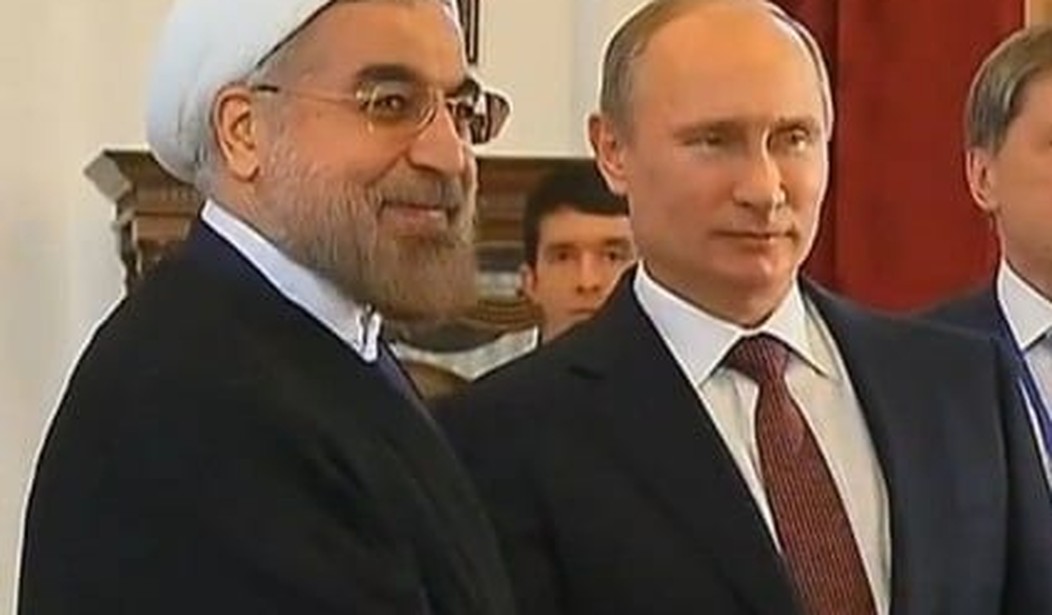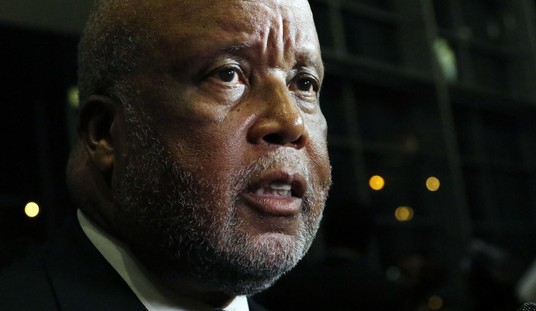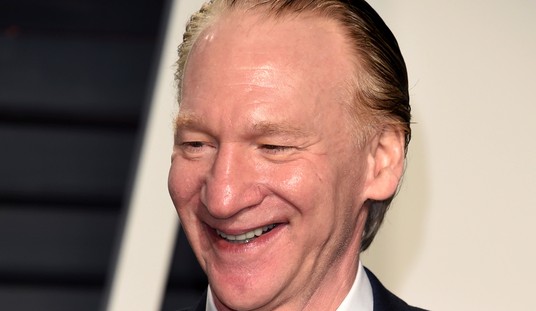WASHINGTON — In a bid to avoid military strikes that the White House was lukewarm about launching, Syria’s regime committed to clear all of its chemical weapons from the country by June 30.
The end of the six-month interim nuclear deal with Iran, which likewise has more than a few skeptics within the Beltway and beyond, rolls around on July 20.
While the world’s attention is diverted by Russian President Vladimir Putin’s invasion of Ukraine and annexation of the Crimean peninsula, his most nefarious allies have important deadlines to meet.
Timelines that, by all indications, are punctuated by obfuscation and delays while Iran and Syria’s ally in the Kremlin — Russia, for example, is Bashar al-Assad’s biggest arms supplier — has the world’s eyes trained on Eastern Europe.
In addition to this perfect storm, the State Department is demanding a Middle East peace plan blueprint be accepted by the end of April.
“We’re going to have to take some tough political decisions and risks if we’re able to move it forward. And my hope is, is that we can continue to see progress in the coming days and weeks,” President Obama said today while welcoming Palestinian President Mahmoud Abbas to the White House.
“We don’t have any time to waste,” Abbas chimed in. “Time is not on our side, especially given the very difficult situation that the Middle East is experiencing and the entire region is facing… Mr. President, I’m aware that you have several international concerns in various places around the world and we know that you are dedicating your time and effort for peace, and so are the teams that are working on this.”
After a fruitless meeting with Russian Foreign Minister Sergei Lavrov in London on Friday, Secretary of State John Kerry said afterward that they nonetheless “agreed that we are going to stay in touch in the next days on Ukraine, as well as on the other issues of concern, which we are working on – Syria, Iran, and other challenges of mutual concern.”
But a senior administration official speaking on background today about Ukraine and the latest sanctions said “clearly we’re willing to indicate that this is going to have costs in our bilateral relationship.”
“But if you look at the scope of those other issues, on the Syria chemical weapons issue, Russia is deeply invested in that project and, in fact, we’ve seen a picking up of the pace in terms of the removal of the CW from Syria,” the official said. “Similarly, on Iran, Russia would only be further isolating itself were it to cease cooperation through the P5-plus-1, and Russia has its own interests in avoiding an escalation of events in the Persian Gulf or nuclear proliferation.”
Moscow has been eager to ink deals with the Islamic Republic regardless of its nuclear status. In January, the two began negotiating a $1.5 billion-per-month oil-for-goods swap intended to undermine sanctions to the tune of half a million barrels of oil per day, sources told Reuters. Onetime Intelligence Committee chairman and former Rep. Peter Hoekstra (R-Mich.) warned the House Foreign Affairs Committee this month that Iran and Russia were forging “a much closer relationship” centered around the capability to wage cyber attacks.
“Iran’s and Russia’s support of Syrian President Bashar al-Assad and their confrontation with US and Western policies aimed at Assad’s demise leads us to conclude that both countries intend to consolidate their strategic depth in the region, establishing themselves as an influential actor. Combine this strategic security objective with the geopolitical security interests, shared between Russia and Iran, and there is no better country with whom Russia could ally than Iran,” Seyed Hossein Mousavian, a former Iranian ambassador to Germany who served as the regime’s mouthpiece in nuclear negotiations with the EU a decade ago, wrote in Al-Monitor on Sunday.
“It is a safe assumption that if the Ukrainian crisis continues and Iran faces excessive demands and pressure from the West during the nuclear negotiations, Russia will move closer to Iran and the two states could form a power pole in the region,” Mousavian added.
Under Secretary of State Wendy Sherman flew to Vienna on Sunday for the second meeting of the P5+1 and Iranian officials since the implementation of the interim agreement.
“I think that we all hope that the incredibly difficult situation in Ukraine will not create issues for this negotiation,” a senior administration official said on background Friday. “We hope that whatever happens in the days ahead, whatever actions we and the international community take, depending upon the decisions and the choices that Russia makes, that any actions that Russia subsequently takes will not put these negotiations at risk.”
The principal deputy assistant Secretary of State for International Security and Non-Proliferation said Sunday that Iran’s “very” active procurement of banned components needed in nuclear and missile programs has continued unabated since the interim deal began.
“We continue to see them very actively setting up and operating through front companies, falsifying documentation, engaging in multiple levels of trans-shipment … to put more apparent distance between where the item originally came from and where it is ultimately going,” Vann Van Diepen told Reuters.
At a Senate Appropriations subcommittee hearing last week on the State Department budget, Sen. Pat Leahy (D-Vt.) noted how much the administration was leaning on Russia in the Iran and Syria deals. Moscow stepped in when Obama decided to enforce his “red line” against Assad’s chemical weapons use, brokering the deal for the dismantling of the program.
“He’s now missed several deadlines for commitments that he had made,” Sen. Jeanne Shaheen (D-N.H.) said, adding it’s “not realistic” to think they’ll meet their latest deadline. “So, can you say what more we can do to pressure Assad to make sure they reduce these chemical weapons?”
“We were working effectively with Russia up until recently, obviously, with respect to this. And it’s a question mark where that’s going to go. Now, Russia was extremely helpful with respect to the chemical weapons effort because of their influence on the regime and their ties to it. And we were also helpful because the president made it clear that if there wasn’t some alternative, he was going to strike. And neither the Russians nor Assad wanted that to happen,” Kerry replied.
“So, the president’s decision, coupled with the cooperation that ensued thereafter, got this regime in place to remove the chemical weapons. I’d say about 30 percent of the chemicals — 33, you know, a third of them are now removed and under control. We have the locations where the rest of them are now contained in 12 different locations. We have to move them from there to the port in Latakia.”
Those 12 locations are only the production facilities declared by the Syrian government to the Organisation for the Prohibition of Chemical Weapons, sites that were supposed to be destroyed by Saturday but remain intact.
Kerry conceded that whether they can achieve the target timeframe “will depend to some degree on the outcome of events that we’re obviously all focused on with respect to Ukraine and so forth.”
“My hope is it will not interfere, that what happens in Ukraine will not interfere. I think Russia maintains a significant interest in not having these chemical weapons loose; not having them fall into the hands of terrorists, particularly since they are a proximate neighbor,” he said. “And therefore, my hope is we will continue no matter what. But we’re focused on getting them out.”
Sen. Mark Kirk (R-Ill.) noted that Iran already has about $5 billion more ready liquid assets since signing the P5+1 deal, money ready to flow into $100 million per year Hezbollah payments. “I would expect that we would see even more terrorism with this additional money available to the Islamic Republic of Iran,” he said.
“Well, Senator, look, I am glad that we have designated Hezbollah a terrorist organization and we’ve led the effort to make sure that Europe has followed now, and labeled them a terrorist organization. And if I had my druthers, obviously we’d like to see them disappear,” Kerry responded. “But we’re working at dealing with Hezbollah and other terrorist organizations in many different ways. But I do believe that we’re on the right track with respect to this first step agreement with Iran because the alternatives are, you know, not as productive as the possibility of being able to reach an agreement through the negotiating process.”








Join the conversation as a VIP Member